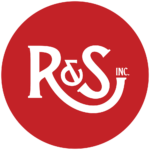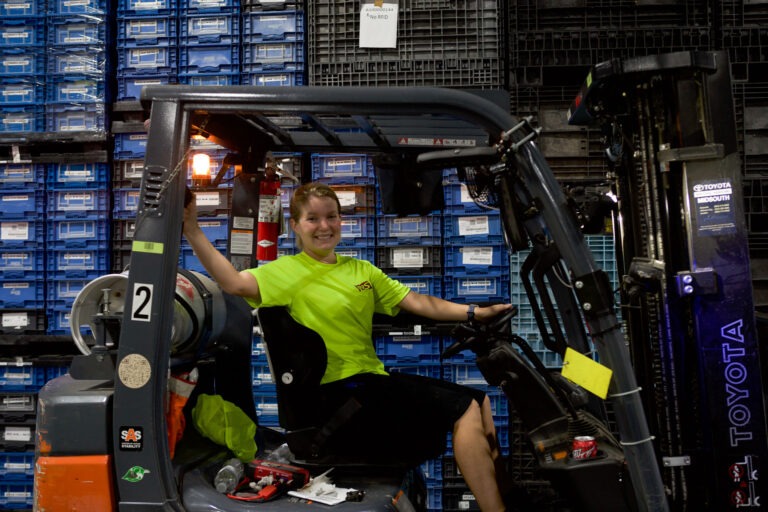If your business is expanding and you’re looking for a logistics provider, you may have come across the terms asset-based and non-asset-based 3PL. (In the logistics world, we love our jargon!) What’s the difference between these two models, and how do you decide which one is right for your needs? Let’s break it down!
Bottomline: Choosing between asset-based and non-asset-based 3PLs depends on your business’s need for control, flexibility, and budget. An asset-based 3PL offers reliability through owned infrastructure but may lack flexibility. Non-asset-based 3PLs provide cost savings and scalability by leveraging partner networks, though with less control.
Asset-Based vs. Non-Asset-Based 3PL: What’s the Difference?
Many growing businesses wonder how to choose between an asset-based and non-asset-based 3PL. Ultimately, the decision depends on your specific business needs, such as the level of control you require, the flexibility you desire, and your budget constraints.
Asset-based 3PLs
Asset-based 3PLs are like landlords in the logistics world. They own everything you need to move and store your goods, which could include the:
- Trucks
- Warehouses
- Distribution centers
This ownership gives them significant control over the supply chain, allowing them to set their own pricing and manage operations directly.
The major advantage here is reliability. Since they own the assets, they can ensure a consistent service level and have more direct control over logistics operations. This is especially important since 64% of shippers say that service is an essential factor for which 3PL they choose. You may also notice a cohesive culture and leadership throughout the organization, as it operates as a unified team with specific, well-defined goals.
A disadvantage to consider is that asset-based 3PLs may not be as flexible as other options. They might be limited to their own network and resources, which can restrict options if your needs change or if you require services outside their geographic reach.
Non-asset-based 3PLs
On the flip side, non-asset-based 3PLs function more like travel agents. They don’t own the physical assets but instead leverage a network of partners to arrange logistics services. This model offers greater flexibility and scalability, as they can select from a wide range of carriers and warehouses to best fit your needs.
This can often lead to cost savings and more customized solutions, along with significantly broader national or global reach. However, the downside is less direct control over the supply chain, as they rely on third-party services to execute logistics operations. This can sometimes lead to challenges in maintaining consistent service levels, especially if the chosen partners do not meet expectations. Because they’re so widespread and don’t own their assets, they act more like a broker to facilitate deals and partnerships between multiple parties. Culture and leadership can often look a little different since those companies tend to cover a lot of territory.
How To Choose
Choosing between an asset-based vs. non-asset-based 3PL can feel like deciding between two different paths for your logistics and shipping needs. The debate boils down to what your business prioritizes: control or flexibility. The final decision should align with your business’s specific needs, whether it’s more control and consistency or cost savings and flexibility.
Asset-based 3PLs are like having your own logistics department. By owning their own infrastructure, you get more control and consistency. This is especially beneficial if you have regular shipments or oversized, non-standard items, as they can offer more tailored options within their supply chain. However, this can come with higher costs and less geographic flexibility since you’re tied to their network and resources.
On the other hand, non-asset-based 3PLs operate like logistics brokers, providing a network of partners to handle your needs. This model often results in lower costs and increased flexibility. Keep in mind that they do rely on third-party carriers and warehouse operators. This can lead to less control over the logistics process, including delivery schedules, quality of service, and handling of goods.
How R&S Can Help
We’re primarily an asset-based 3PL offering extensive warehousing solutions across East Tennessee and Savannah. With over two million square feet of configurable warehouse space, we own properties that provide strategic advantages in logistics operations.
This ownership allows us to offer a variety of value-added services, including:
These services are possible because we can customize our warehouse spaces to meet your specific needs. This flexibility and control ensures that we can deliver reliable and efficient logistics solutions, tailored to your unique requirements.

Deciding between asset-based and non-asset-based 3PLs hinges on your business’s requirements for control, flexibility, and budget. Asset-based options ensure reliability through owned infrastructure but may be less flexible. Non-asset-based providers offer cost savings and scalability by utilizing partner networks, though with reduced control.


